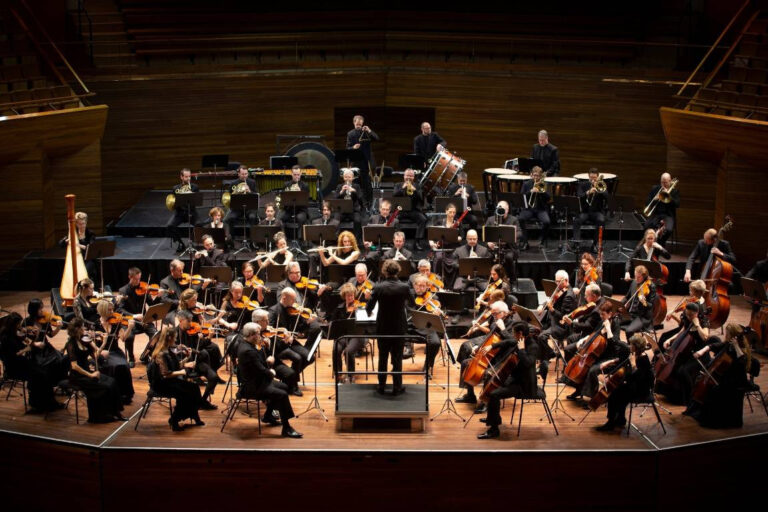Ancient Greece is having a moment. To be honest, it’s usually having some sort of moment. Even though the society of Ancient Greece was relatively small and short in the historical record, we’re always looking back to it to discover new things. First, the Romans based their whole society on it, then the Renaissance became obsessed with recapturing the glory of Ancient Greece, and in the 2020s, our fascination with Greek mythology has captured the book-reading public again.
The popularity of Madeline Miller, both as a bestseller and then a BookTok sensation, is a motivating factor for the resurgence of the love for Ancient Greek myth and the rise of feminist retelling. The excitement for the new Percy Jackson and the Olympians television series is also undeniable. However, I think it’s larger than just one author or series. Before we get into the popularity of feminist re-examining of Greek mythology, we have to understand Ancient Greece’s dominance in education and why it burrows so deeply into the public consciousness.
Learning about Ancient Greece is a central tenet of the American education system. In middle school, I learned about the ancient Greeks and their establishment of democracy, their architecture, and their artistic innovations, from statues to the theater. Growing up, I regularly read from D’Aulaires’ Book of Greek Myths as bedtime stories as well. D’Aulaires’ book, and Greek myths in general, remain popular for kids because of the magic and weirdness and big-fighting-family nature of Greek mythology. High school brought The Odyssey and more lessons about Homer and the epic cycle of poems that define Greek storytelling.
Even after K-12 education, classics of Ancient Greek writers are included in core college curricula as an introduction to various aspects of philosophy, literature, and drama. The most prestigious universities, like Oxbridge in the United Kingdom or the Ivy League in the States, have large Classics departments that continue to assert the importance of Ancient Greece (and Rome) as central tenets of education and intellectualism.
Even in the arts, Ancient Greek plays are an important site of study for aspiring playwrights, directors, and actors in conservatory programs. It’s not hard to see how this became so important to education. The Renaissance is largely seen in the Western world as the standard for intellectual thought. The Renaissance looked back to Ancient Greece and Ancient Rome for inspiration. So, if we’re studying the important intellectual movements in history, we’re required to study the Classics and the Renaissance. Not only were the Ancient Greeks important for intellectual rigor, they made strides in art, architecture, and politics that later on affected the Western countries seeking to become intellectual and cultural leaders of the 17th century.
THE BATTLEFIELD OF ANCIENT GREECE
The field of Classics, as it is known in higher education, is a site of argument over the old ways versus the new. In a long New York Times article examining a fight over the future of the Classics discipline, many classicists note that they are disturbed that right-wing propagandists and white supremacists cite Ancient Greece as the beginning of “white” culture. Dan-el Padilla Peralta, a scholar at Princeton University, was profiled in the article because he used his success as a classical scholar to push for intense reforms in the way the discipline is taught to all students. Needless to say, this caused controversy among classicists, some of whom are the absolute stereotype of a head-in-sand academic with no interest in the world around them.
In response to this article in Inside Higher Ed, professors Max L. Goldman and Rebecca Futo Kennedy note that Classics departments had been steadily making changes for years in an effort to be more in touch with the times and recognize that Ancient Greece and Rome were part of a larger world of antiquity (not just those specific countries) and the modern understandings of them. “Many of our courses engage directly with the legacy of our discipline as support for narratives of Western exceptionalism and even white supremacism,” they wrote. Their focus is on encouraging continued debate about Classics and how to teach them to “ensure the continued study of antiquity” because understanding the past in the Humanities makes us more literate, historical-minded individuals.
Classics as a site of inquiry for historical power structures makes it a ripe setting for novelists as well. As Hermes sings in the hit musical Hadestown, “It’s an old tale from way back when / And we’re gonna sing it again and again.”
TRENDY FEMINIST RETELLINGS
With all of these issues swirling around, it makes sense why there’s more interest in feminist retellings of Greek myth, or more work that fills in the gaps of the other lives lived in antiquity. Although there are plenty of recently published books to look at for feminist retellings, Margaret Atwood’s 2005 novella The Penelopiad imagines The Odyssey from the perspective of the wife he left behind and her maids. Oreo by Fran Ross is a modern twist on The Odyssey as well, reframing the story from the perspective of a young mixed-race girl in Philadelphia.
Though this book came out in 2000, it was rediscovered after the author’s death, so it was originally written a few decades before. The need for a modern spin on the Classics is not a recent phenomenon. The current trend for feminist retellings also focuses on filling in gaps in the female characters in Ancient Greek myths and epic poems. Madeline Miller’s Circe focuses entirely on a fascinating female character from The Odyssey, giving her the hero treatment. Pat Barker’s The Women of Troy fills in the lives of the women of The Iliad during the Trojan War.
On the other hand, authors also seek to re-imagine the Ancient Greek stories and use them as plot structures for contemporary issues. Home Fire by Kamila Shamsie (winner of the Women’s Prize for Fiction in 2018) takes the Greek play Antigone to comment on Muslim identity in Britain. In addition, the collection Fit for the Gods is essentially a reimagined D’Aulaires’ Book of Greek Myths. These feminist retellings and contemporary reimaginings are important because they push back against the reactionaries who seek to keep Ancient Greece in a white-centric, “Western civilization” version of history that forces all history into a schematic of great white men. Instead of seeing diversity as a random recent phenomenon, these writers work to revive the stories of overlooked people of the past.
On top of this pile of retellings, Emily Wilson made waves as the first woman to publish a translation of The Odyssey and The Iliad. Her translation gave the epic poems a “radically contemporary voice.” The public interest in her translation work seems to mirror the issues in Classics departments across the country: how do we make these works of antiquity relevant again? What does the same song, sung again and again, still have to reveal to us?
MOVING FORWARD WITH THE MAENADS
Whether it’s a feminist retelling, a contemporary update, or an exciting new translation, Ancient Greece is full of ruins to decode and understand. The Classics should not be a static genre. We must rewrite and re-translate and re-examine to our heart’s content because, if the field is never assessed with updated sensibilities, it will fall back into the past and be forgotten. This is what happened to the countless unknown stories of marginalized people that were never seen fit to write down.
There are tons of Greek mythology books to satisfy a fascination with Greek mythology, and you can also find more books about Egyptian mythology, and books inspired by folklore and mythology in general.
Source: Book Riot







